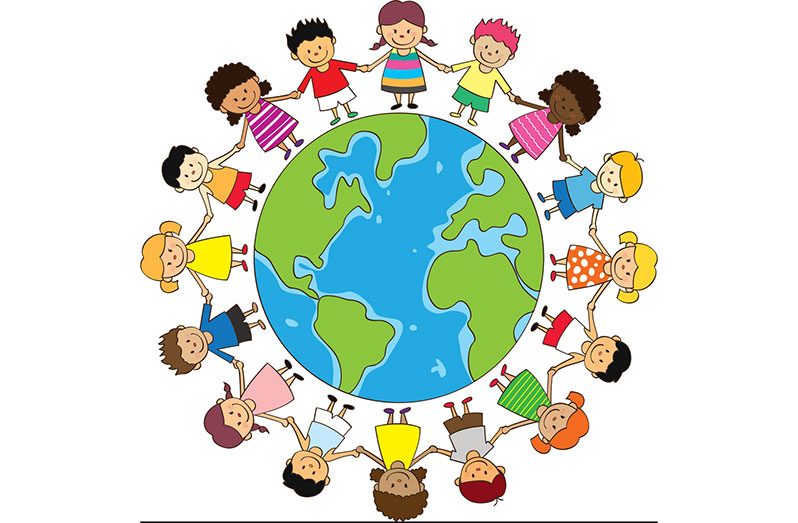By Vanessa Cort
AS in each year on November 20, World Children’s Day is celebrated “to promote international togetherness, awareness among children worldwide, and improving children’s welfare,” according to the United Nations (UN).
On this date in 1959, the UN General Assembly adopted the Declaration of the Rights of the Child and three decades later adopted the Convention on the Rights of the Child.
This year, the day was celebrated under the theme: “Inclusion, for every child,” and UNIICEF declared that young people are raising their voices on issues that matter to their generation. They are calling on adults to address climate change, education, mental health and to bring an end to racism and discrimination. They are seeking “a more inclusive world.”
As human beings, children are entitled to certain considerations, particularly as they are the future of our nations. Their health and well-being must be society’s prime concern.
While their rights are enshrined in the UN Declaration, many have yet to enjoy them and many more are forced to endure untold suffering not of their own doing.
Worldwide, children in conflict areas are subjected to both physical and psychological trauma on a daily basis. They must often fend for themselves when parents are killed or otherwise incapacitated and the prospect of death at any time from bombs or gunfire, looms large.
The shortage of food, potable water and health care makes these children vulnerable to diseases, malnutrition and in extreme cases, starvation.
Such is the case in those countries where drought and flooding have led to the death of livestock and the destruction of crops and homes. Millions of children are now at risk in Africa and Asia, which is home to three-quarters of the world’s children.
Research shows that the number of children without parents is rising and in our society, we can see children living on the streets, either as a result of broken homes, lack of parental supervision or escaping the spectre of physical and sexual abuse.
According to SOS Children’s Villages, an estimated 151 million children worldwide have lost one or both parents and most of the children without parental care live in Sub-Saharan Africa.
However, the group notes: “Contrary to popular belief, becoming orphaned is not the primary driving factor resulting in children needing alternative care, it is simply one of many factors. Children who are separated from their families or are at risk of separation, tend to experience more than one risk factor at a time.”
Risk factors include poor health; socio-cultural issues such as family breakdowns, divorce and remarriage, abuse and violence. But at the top of the list is poverty, which is said to be the number one risk factor for family crises leading to family breakdown and child abandonment in
Africa, Asia and Latin America. And figures show that 570 million children (18 years old and younger) are living in extreme poverty.
Even more alarming is a statement by UNICEF’s Executive Director, Catherine Russell, that one billion of the world’s most vulnerable children are at extreme risk. In a dire warning, she said: “If the world fails to act, tomorrow it will be all children. It is past time to put children at the centre of climate action.”
Here, the executive director, speaking at the Intergovernmental Panel on Climate change (IPCC), was referring particularly to the devastating effect of climate change on the environment. She pointed out that almost every child across the globe has been exposed to climate hazards, such as heatwaves, drought and flooding.
Ms Russell issued a clarion call for every country “to commit to ensuring child-centred adaptation is the centre-piece of all climate plans as a matter of the highest priority.”
This includes critical areas that support children’s well-being such as water and sanitation; health, nutrition and education; social policy and child protection. She also stressed the need for attention to the most marginalised and vulnerable children from the poorest communities.



.jpg)










